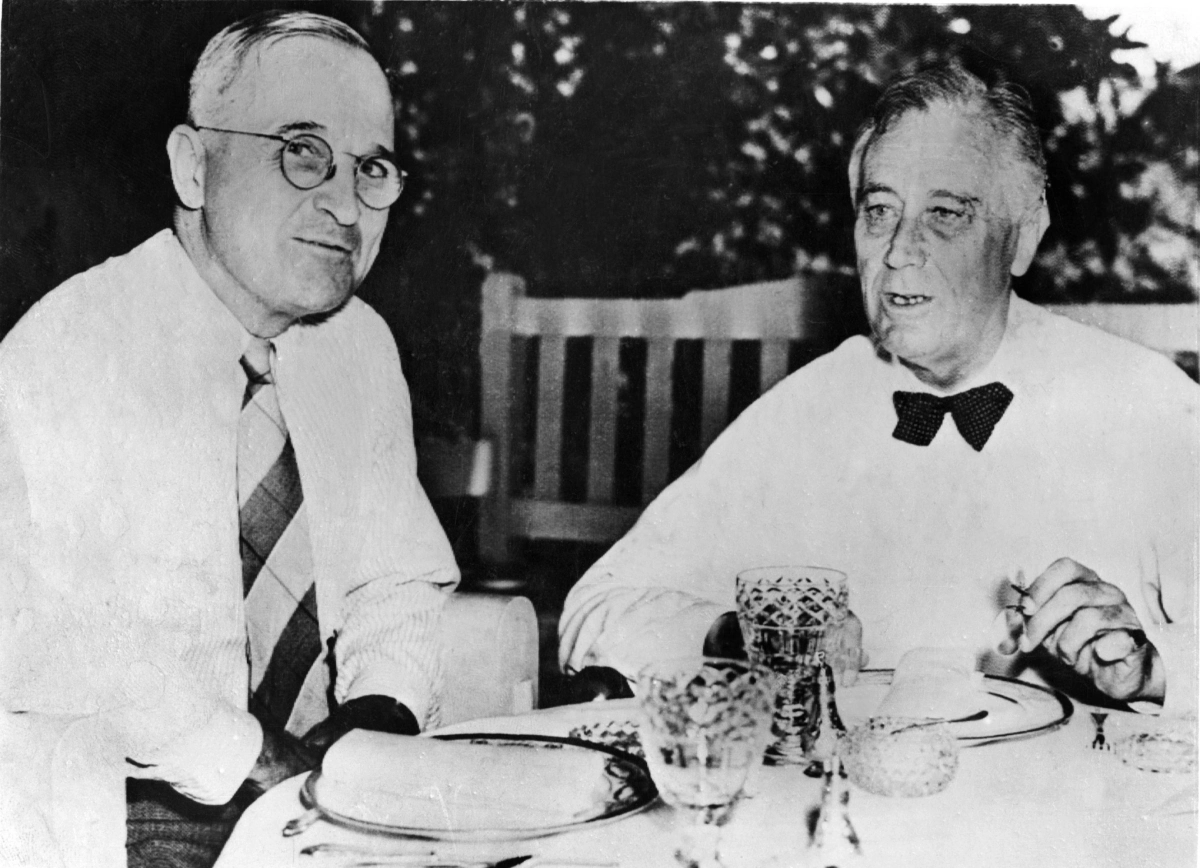By Kaleena Fraga
On this day in 1945, Franklin Delano Roosevelt died. President since 1933, Roosevelt was only a few months into his fourth term in office.
He was spending some time in Warm Springs, Georgia, hoping that the the temperate climate and hot springs could restore his health. Roosevelt had another reason to visit Warm Springs–he’d planned a rendezvous with his long time mistress, Lucy (Mercer) Rutherford. Rutherford had arranged for her friend, Elizabeth Schoumatoff, to paint a portrait of the president.
 Schoumatoff was standing at her easel painting the president when something in his demeanor changed. She later recalled: “He looked at me, his forehead furrowed in pain, and tried to smile. He put his left hand up to the back of his head and said, ‘I have a terrible pain in the back of my head.’ And then he collapsed.”
Schoumatoff was standing at her easel painting the president when something in his demeanor changed. She later recalled: “He looked at me, his forehead furrowed in pain, and tried to smile. He put his left hand up to the back of his head and said, ‘I have a terrible pain in the back of my head.’ And then he collapsed.”
Franklin D. Roosevelt died a few hours later. He was 63.
In Washington D.C., Vice President Harry Truman arrived at the White House, where he was greeted by the president’s widow, Eleanor Roosevelt. She told him that the president had died. Truman, stunned, was silent. Then he asked if there was anything he could do for her.
“Is there anything we can do for you?” Eleanor replied. “For you are the one in trouble now.”
For many people, Roosevelt had been the only president they had ever known. He died as WWII had begun to come to an end. In David McCullough’s Truman, McCullough writes that the similarities of Lincoln and FDR’s death were not unappreciated–both had died in April, both died as the wars they’d fought ended, and both would be remembered as great men. “But implicit,” McCullough writes, “was also the thought that Lincoln, too, had been succeeded by a lackluster, so-called ‘common man,’ the ill-fated Andrew Johnson.”
Truman, for his part, told a crowd of reporters:
“Boys, if you ever pray, pray for me now. I don’t know whether you fellows ever had a load of hay fall on you, but when they told me yesterday what had happened, I felt like the moon, the stars, and all the planets had fallen on me.”
Truman’s premature ascension to the presidency prompts one of the what-ifs of presidential history. It was Truman, not Roosevelt, that guided the country through the last stages of WWII, including the dropping of atomic bombs on Japan. Today’s historians have to wonder what FDR might have done in his stead.
Still, Truman finished the three years of Roosevelt’s term and (narrowly) won reelection  in his own right. Although his approval rating hovered in the thirties at the end of his term, history later came to regard Truman as one of the nation’s best presidents. Per McCullough, his legacy includes “the creation of the United Nations, the Truman Doctrine, the Marshall Plan, the Berlin Airlift, the recognition of Israel, NATO; for committing American forces in Korea and for upholding the principle of civilian control over the military.”
in his own right. Although his approval rating hovered in the thirties at the end of his term, history later came to regard Truman as one of the nation’s best presidents. Per McCullough, his legacy includes “the creation of the United Nations, the Truman Doctrine, the Marshall Plan, the Berlin Airlift, the recognition of Israel, NATO; for committing American forces in Korea and for upholding the principle of civilian control over the military.”
Truman certainly had big shoes to fill. When FDR died 73 years ago today, the New York Times eulogized him by writing:
“Men will thank God on their knees a hundred years from now, that Franklin D. Roosevelt was in the White House…it was his leadership which inspired free men in every part of the world to fight with greater hope and courage. Gone, now, is this talent and skill…Gone is the fresh and spontaneous interest which this man took, as naturally as he breathed air, in the troubles and hardships and the disappointments and the hopes of little men and humble people.”

So interesting; I like this one quote ascribed to FDR: “I like submarine Captains; they don’t put up with bullshit and neither do I.”
LikeLiked by 1 person